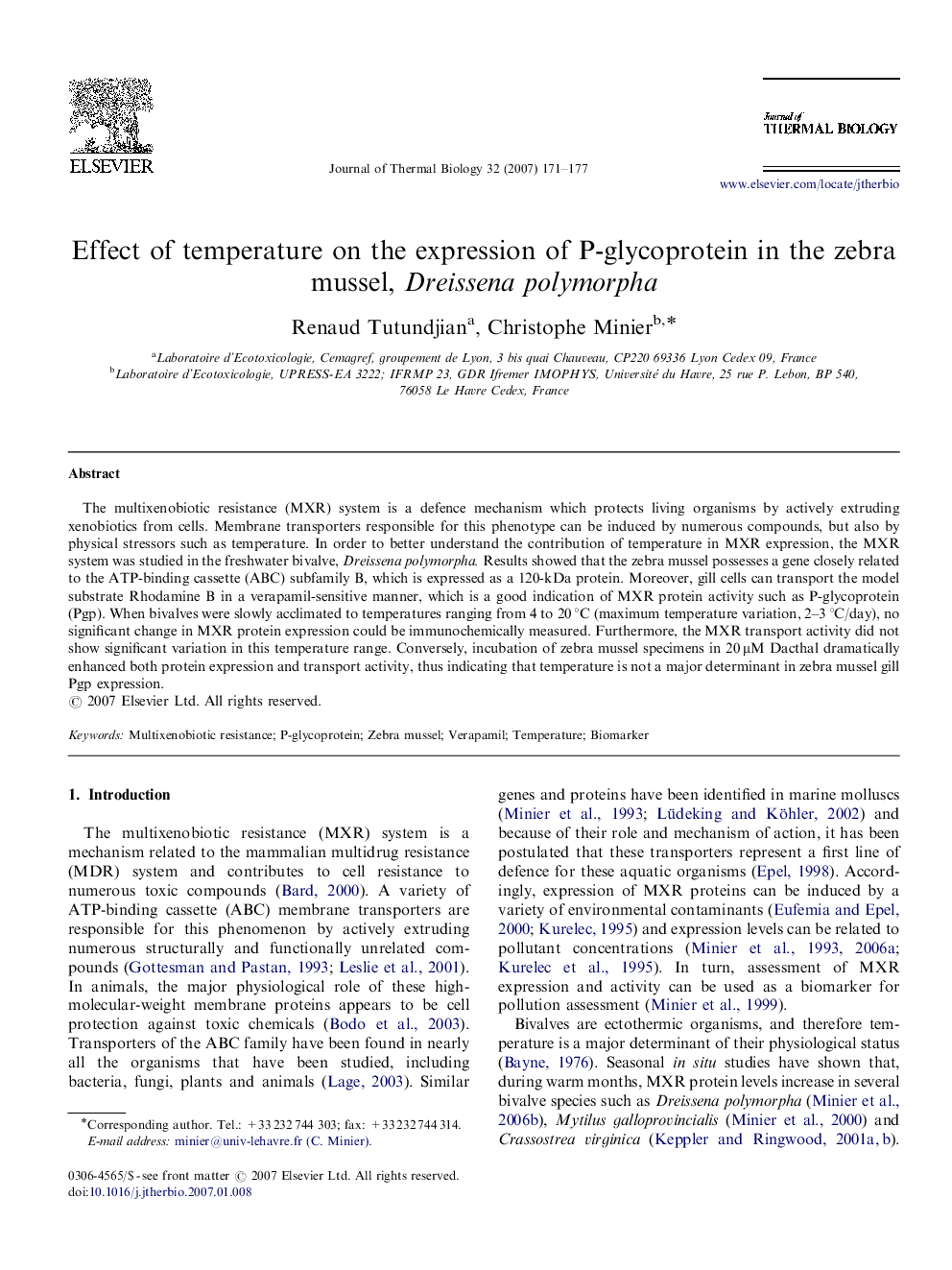| Article ID | Journal | Published Year | Pages | File Type |
|---|---|---|---|---|
| 2843699 | Journal of Thermal Biology | 2007 | 7 Pages |
Abstract
The multixenobiotic resistance (MXR) system is a defence mechanism which protects living organisms by actively extruding xenobiotics from cells. Membrane transporters responsible for this phenotype can be induced by numerous compounds, but also by physical stressors such as temperature. In order to better understand the contribution of temperature in MXR expression, the MXR system was studied in the freshwater bivalve, Dreissena polymorpha. Results showed that the zebra mussel possesses a gene closely related to the ATP-binding cassette (ABC) subfamily B, which is expressed as a 120-kDa protein. Moreover, gill cells can transport the model substrate Rhodamine B in a verapamil-sensitive manner, which is a good indication of MXR protein activity such as P-glycoprotein (Pgp). When bivalves were slowly acclimated to temperatures ranging from 4 to 20 °C (maximum temperature variation, 2-3 °C/day), no significant change in MXR protein expression could be immunochemically measured. Furthermore, the MXR transport activity did not show significant variation in this temperature range. Conversely, incubation of zebra mussel specimens in 20 μM Dacthal dramatically enhanced both protein expression and transport activity, thus indicating that temperature is not a major determinant in zebra mussel gill Pgp expression.
Related Topics
Life Sciences
Agricultural and Biological Sciences
Agricultural and Biological Sciences (General)
Authors
Renaud Tutundjian, Christophe Minier,
